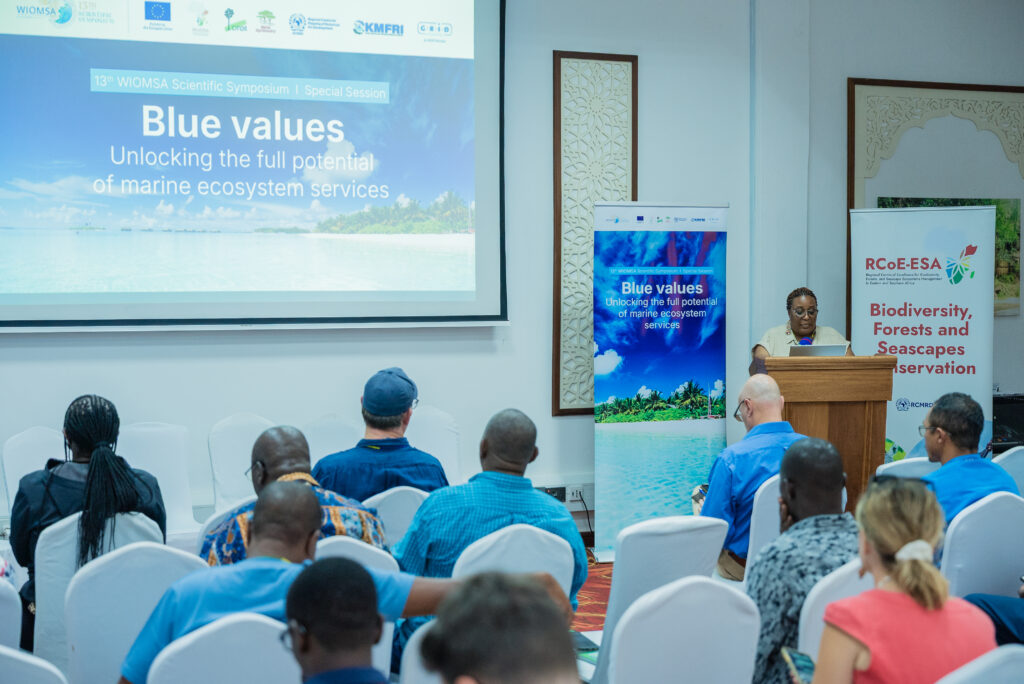Mombasa, Kenya. Marine experts and regional stakeholders are calling for countries bordering the Indian Ocean to adopt a holistic “Blue Values” framework that safeguards both human and ecological benefits derived from the ocean.
The appeal was made on October 03, 2025 during a special session on Blue Values at the 13th Western Indian Ocean Marine Science Association (WIOMSA) Scientific Symposium held in Mombasa, Kenya, from 28 September to 3 October 2025.
The symposium is the region’s largest open scientific conference dedicated to advancing sustainable ocean management.
The Indian Ocean supports millions of lives by providing food, livelihoods, climate regulation, and cultural identity. However, experts warn that these benefits are increasingly threatened by climate change, overfishing, pollution, and habitat degradation.
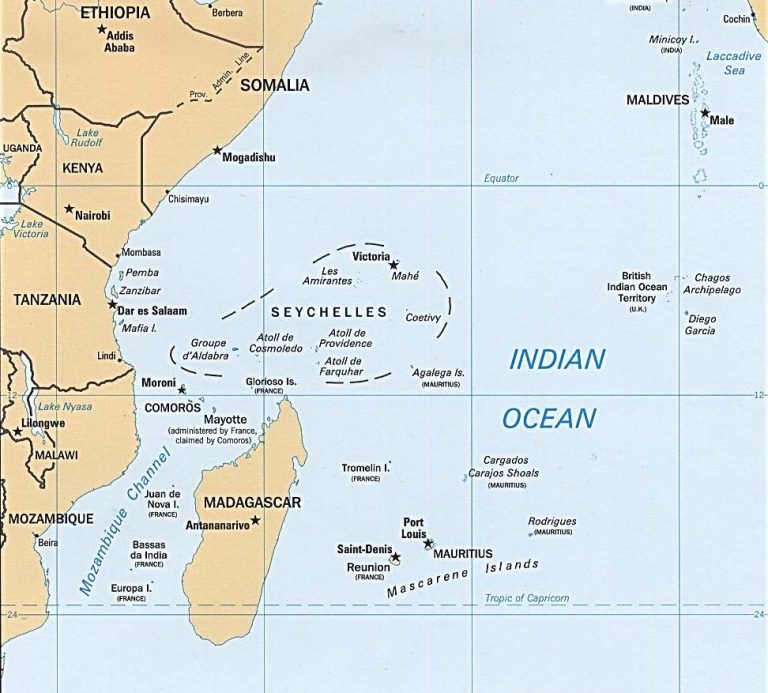
To confront these challenges, they propose a Blue Values framework that recognizes the full range of ecosystem services beyond fisheries and tourism.
According to World Wide Fund for Nature (WWF) data from 2017, the annual Gross Marine Product of the Western Indian Ocean region comparable to a country’s GDP is at least US$20.8 billion, positioning it among the world’s largest ocean-based economies.
The region spans ten countries: Comoros, France (Réunion and Mayotte), Kenya, Madagascar, Mauritius, Mozambique, Seychelles, Somalia, South Africa, and Tanzania.
The session, co-organized by Kenya Marine and Fisheries Research Institute (KMFRI), Kenya Forest Service (KFS), World Agroforestry and the Centre for International Forestry Research (CIFOR-ICRAF), Regional Centre for Mapping of Resources for Development (RCMRD), and GRID Arendal, emphasized that sustainable ocean governance must encompass ecological, social, cultural, and climate dimensions not just economic gains.
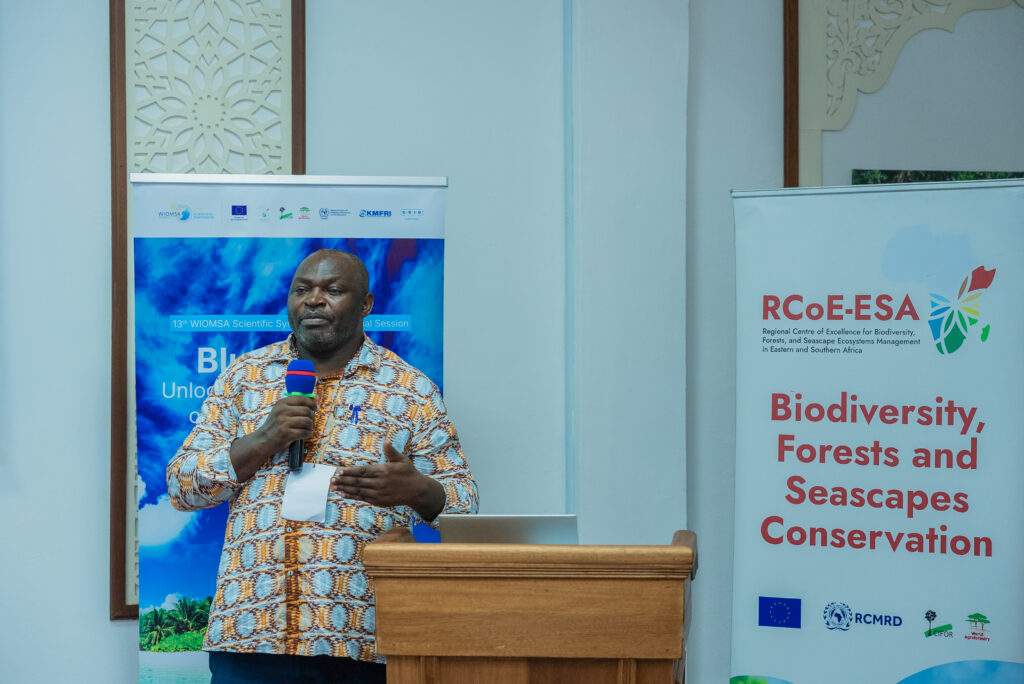
“The ocean is more than a source of fish or tourism revenue. It regulates climate, protects coastlines, sustains biodiversity, and preserves cultural identity.
These values must be integrated into national policies and planning to guide investments, restoration, and governance,” said James Kairo, Chief Scientist at KMFRI.
The Kenya Forest Service underscored the critical role of mangroves in ocean health.
“Mangroves are frontline defenders of the Indian Ocean. They protect coastlines from erosion, serve as fish nurseries, and store immense amounts of carbon. Their health determines the resilience of both marine ecosystems and the communities that depend on them,” noted James Mburu, Coast Regional Forest Conservator at KFS.
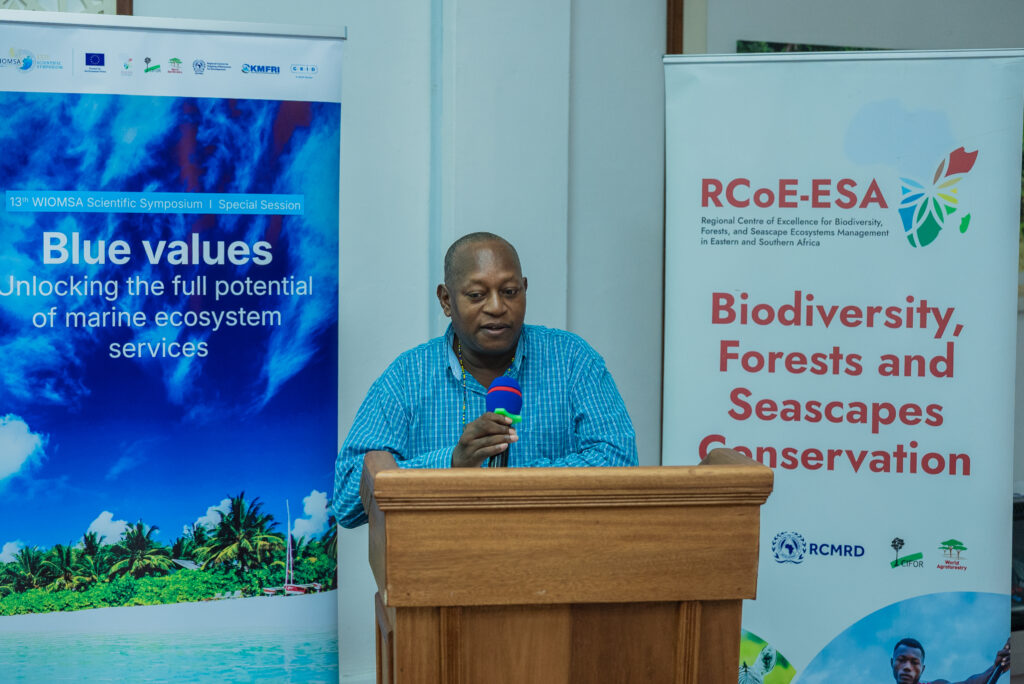
This perspective aligns with the essence of the Blue Values approach balancing economic use, environmental stewardship, and community well-being.
The framework calls for investments in activities that not only generate income but also restore ecosystems and strengthen coastal resilience.
“We must invest in actions that heal and enhance ocean health, not just reduce harm,” emphasized Ivy Amugune, Research and Development Specialist at CIFOR-ICRAF.
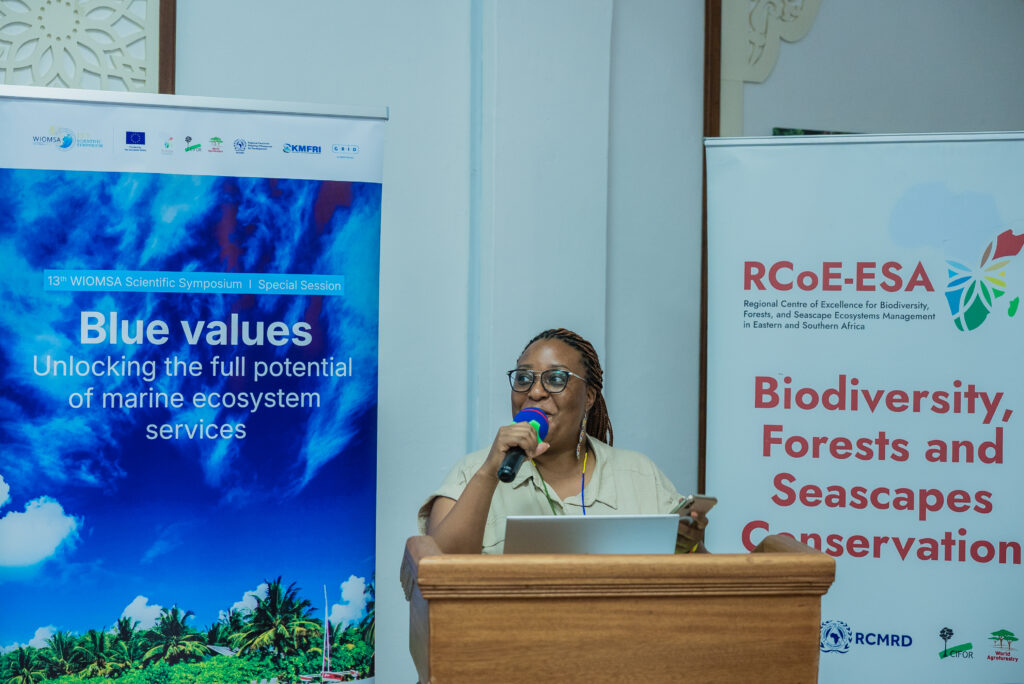
A key component of the framework involves using scientific data and spatial mapping to guide decision-making.
“Our goal is to make the invisible benefits of coastal ecosystems visible through data, maps, and spatial analyses. This enables policymakers to make informed, long-term choices,” explained Josphat Nguu, Ecosystem Ecology Specialist at RCMRD.
Through the EU-funded Regional Centre of Excellence for Biodiversity, Forests and Seascape Ecosystems Management in Eastern and Southern Africa (RCOE-ESA), CIFOR-ICRAF and RCMRD are collaborating with governments to expand access to credible data, including tools such as the Seascapes Geoportal, which supports evidence-based ocean governance.
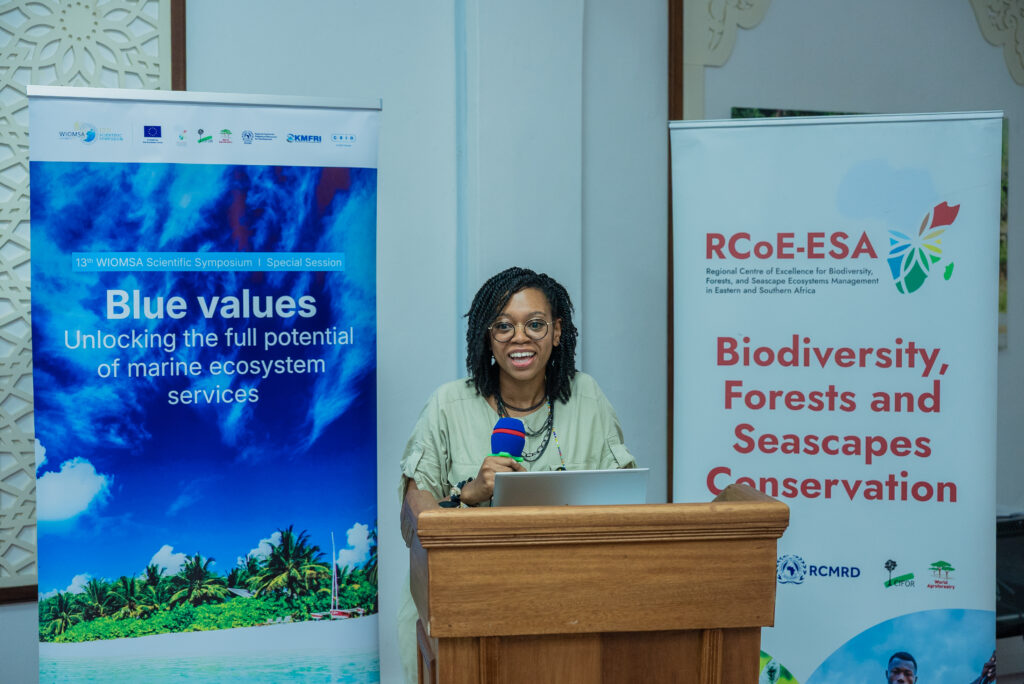
Crucially, the Blue Values framework centers on coastal communities, recognising their role as stewards of marine ecosystems.
“Sustainable ocean management must meaningfully involve coastal communities who depend on these ecosystems. Their voices, knowledge, and leadership are vital in crafting solutions that are fair, effective, and lasting,” said Lorna Nyaga, Researcher and Community Engagement Specialist at CIFOR-ICRAF.
Thriving oceans mean thriving people. Protecting marine ecosystems empowers communities, builds resilience, and ensures dignity for generations to come.
Experts concluded that integrating Blue Values into national and regional policies is essential for long-term prosperity.
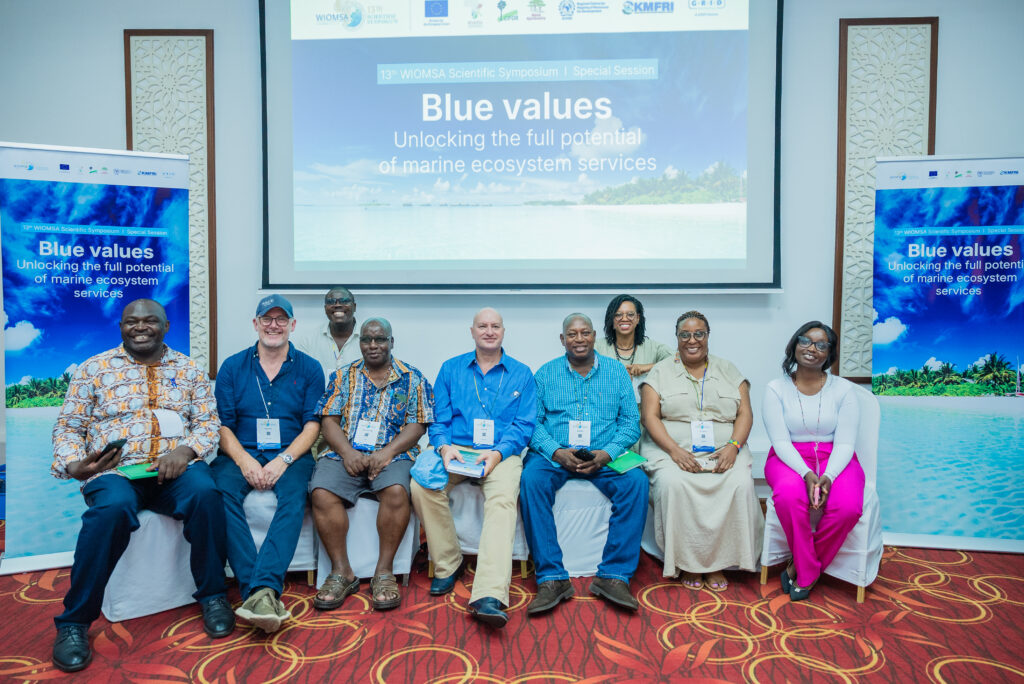
“Policies should move beyond short-term gains and view the ocean as a foundation for enduring growth.
By embedding Blue Values into marine spatial planning, fisheries management, climate strategies, and coastal development, countries can secure livelihoods, boost resilience, and unlock sustainable opportunities,” said Jacklin Karimi, Policy Engagement Specialist at RCMRD.


